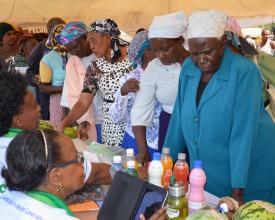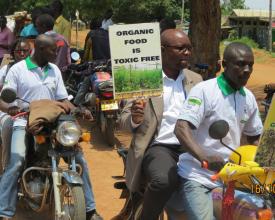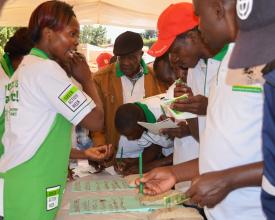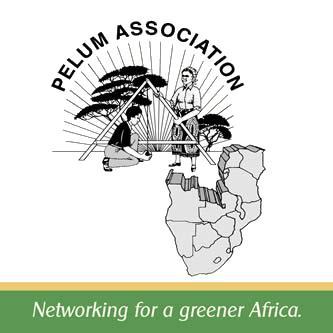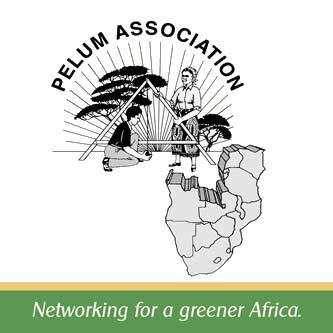
Green Action Week Campaigns in Kenya
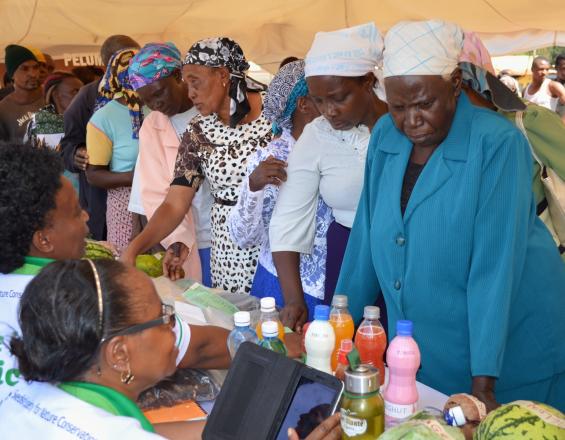
Green Action Week Campaigns is a global initiative to promote sustainable consumption. Each year the campaign picks a joint theme, which is promoted in all the participating countries during the World Food Day period of September and October, and is climaxed during the World Food Day on 16th October each year. The campaigns were started in Sweden and are currently coordinated by SSNC and Conumer International. The campaign has 53 participating CSOs in 29 countries from Asia, Africa, Europe and America. In Kenya, PELUM Kenya and the Kenya Consumer Organization have been participating in the campaign since 2013. “Organic food and farming for all” has been the campaign focus for the Green Action Week 2013-2017. PELUM Kenya has implemented the campaigns in Nakuru County, Machakos County and Busia County. The key activities have been Food Fairs, farmer exhibitions and peaceful demontrations on promoting organic farming and food for all.
Context
Challenges addressed
Among the consumer community, the demand for ecologically produced products has continued to grow in Kenya, especially in the major cities. Consumer survey conducted by KOAN and Organic Denmark in 2014 indicated that there are close to 300,000 organic consumers, who are ready and willing to buy organic fruits and vegetables. The number of certified organic farmers to supply domestic market has not grown in tandem with the increased demand. A baseline survey conducted by IFOAM in 2015 indicated that the expansion of organic businesses is currently hampered by lack of organic products.
Though there is a clear demand for organic products from the trading community and outlets, the consistency of supplying organic products especially from smallholder farmers hinders the flow of products to the market.
There is also lack of consumer awareness and among the general population on the benefits of consuming organic foods, which is limiting the preference for organic produce among consumers.
Location
Process
Summary of the process
Global theme for a common purpose is the basis for the GAW campaigns, which is downscaled to Kenya with a focus on the multistakeholder approach. The two building blocks relate to each other since having a global theme is part of enhancing partnerships and multistakeholder engagement. As a network, the third building block of strengthening zonal networking is part of multistakeholder engagement and is core for PELUM Kenya network.
Building Blocks
Multi-Stakeholder Approach
The campaign employs a multi-stakeholder approach by ensuring that relevant stakeholders including the relevant Government Ministries, Schools, Private Sector, Farmers, Media, PELUM Kenya member organizations and othe CSOs are involved in the campaigns as a strategy of enhancing sustainability of the project beyond the project period.
The project targets the wider public through mass awareness creation so as to raise awareness on the need to grow and eat organic foods.
Media is embraced to reach to the wider public through both electric and print media methods. This includes continuous update of PELUM Kenya’s social media sites with organic food and farming messages. The media practioners are also invited to cover and air the various activities.
It also targets to build capacity of small scale farmers to further embrace organic foods and farming for healthy environments and people. This is done through exchange visits to successful organic enterprises and organic exhibitions.
As a way of enhancing the spirit of networking within PELUM Kenya network, all the member organizations of PELUM Kenya in the focus areas are involved in all aspects of this project.
Enabling factors
- Various stakeholders have different roles to play in enhancing the plight of organic food and farming. Relationship building, partnerships and networking is also key for ensuring that anticipated results are achieved.
- Our mission as a network is to promote Ecological Land Use Management (elum) practices, which include organic farming and foods. A majority of PELUM Kenya member organizations promote organic farming as well. Green Action Week therefore compliments well with our mission as an organization
Lesson learned
- The global campaign gives added value to national activities as it exposes the efforts of other stakeholders in promoting sustainable production and consumption of organic products; it also helps in creating awareness to the public beyond what the national team would do.
- Undertaking joint activities with all the implementing partners and stakeholders in activities yields results faster than when a single organization does it and also provides a learning and sharing forum
- There is need for early planning and engagement to reach a broader scope of stakeholders- schools, tertiary colleges, government departments, business people, and farmer organizations
- Target and organize special meetings with decision makers in efforts to popularize the idea among relevant authorities and to bring them on board using advocacy strategies that are friendly and not activitism
Strengthening PELUM Kenya Zonal Networking
Following the Devolvement of Kenya in 2010, PELUM Kenya devolved itself in to six networking zones namely: Central Rift Valley Zone, Lower Eastern and Coastal Zone, Nairobi/Central Zone, Upper Eatern and Northern Kenya Zone, Western Zone and Nyanza Zone.
PELUM Kenya has therefore been focusing on a zone during implementation of the Green Action Week campaigns as a way of promoting horizontal networking. The members of a zone are involved in the planning, implementation and monitoring of the campaigns with one of the member organizations being the lead member organisation and in close coordination by PELUM Kenya secretariat and zonal staff. This provides a platform for learning and sharing among Member Organizations
Enabling factors
- Joint planning and implementation of the campaign activities
- Coordination by a lead member organization
- Cross learning and sharing among the Zonal Member Organizations
- Creation of synergies to enhance achievement of results
Lesson learned
- There is need to engage in early planning for all the activities that include a number of member organizations working together
- There is need to undertake effective joint planning including levelling of expectations and capapcity building on the intended results from the inititive to foster joint learning and understanding on the campaign results
Global theme for a common purpose
The GAW campaigns are organized in such a manner that each year there is a common theme for all the participating countries globally. This enhances learning from each other as there are common resources that are shared by the coordinating agencies such as brochures and provision of a common platform for cross learning and shring amongst participating partners. There are opportunities that are provided for joint meetings to review the progress of the campaign and share experiences from various parts of the globe. This provides an opportunity to jointly evaluate what has been working and what has not been working for improvement and learning. Having a common theme around the globe enhances the level of achievement of the anticipated results from various continents. The campaign also takes place simultaneously around the world.
Enabling factors
- Having a joint theme for all participating countries
- Having common campaign sites i.e. website and Facebook page for sharing and learning from each other
- Having common coordinators of the initiative i.e SSNC and consumer international
- Organized activities around the World Food Day makes the agenda of sustaianble consuption be implemented in a timely manner
Lesson learned
- There is need for cross learning and sharing amongst partners on best practices and successes for upscaling in different contexts
- The concept of Green Action Week Campaigns is easily replicable in different localities and contexts with the selected themes being suitable everywhere
Impacts
- Over the years there has been a steady increase in the number of consumers, producers and decision makers reached directly. For example between 2014 and 2017, the number of people reached directly grew from 1,300 to 5,000. 500,000 people have been indirectly reached yearly through local media, electronic and print media. They have been sensitized on the importance of farming and consuming organic foods hence increasing awareness on sustainable production and consumption.
- There has been great interest and coverage by the media on the 2013-2017 Green Action Week events. This has enhanced the level of achievement of the anticipated outputs on increased public awareness on organic food and farming.
- The campaign has been collaborating with the County Government Departments of Agriculture and Livestock during the implementation of the activities, hence providing an opportunity for further engagement and partnership towards campaigning on organic farming. In 2017, the County Executive Committee Member of Busia graced the World Food Day celebrations and confirmed their support as a County Government on organic food and farming.
- Zonal Networking among PELUM Kenya Member Organizations in the various regions has been enhanced due to joint planning and implementation of the campaign activities.
Beneficiaries
- Small Scale Farmers
- Schools and Colleges
- Consumers
- Government Institutions (both local and central)
- PELUM Kenya Member Organizations

